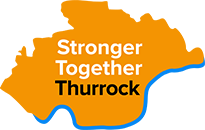What is Restorative Justice?
RJ supports those harmed by crime or anti-social behaviour (a direct victim, or anyone who has been affected such as a victim’s family member or a witness) to have contact with the person responsible for the harm to try to find a way forward. This is voluntary and both sides need to agree for the contact to take place.
Restorative Justice can be effective in showing the responsible person the real impact of their actions by putting a face to their crime. It also gives the victim and/or family the chance to tell the offender how they feel about what has happened, ask for an apology and get answers to their questions. The victim may also have the chance to help decide what activity the offender can do to repair some of the damage done. It can help those who have committed crimes or anti-social behaviour reintegrate back into society and helps to reduce reoffending.
The Essex Restorative and Mediation Service (ERMS) also offers mediation for those involved in conflict or disputes such as neighbours. Mediation processes facilitate communication between parties involved to allow them to discuss the issues and work towards a mutually agreed way forward.
The role of the volunteers at the Essex Restorative and Mediation Service
Volunteer facilitators will enable communication between people who have been harmed, and those who are responsible for that harm. These interventions can include face-to-face meetings, or indirect communication (such as letters) between parties.
What types of cases could I work on?
Neighbour disputes
Issues within a community
Low and medium level criminal offences and anti-social behaviour
Serious crimes (additional training is required before working on our most serious and complex cases)
Volunteer Facilitators visit victims and perpetrators in their own homes, local towns or criminal justice organisations (probation offices and prisons). (Meeting places will be arranged by the volunteer and participants).
There are also further opportunities to work on different projects and attend external partner meetings.
What training do volunteers receive?
Initial training is 4 full days and covers both restorative justice and mediation skills. The training is in-person. Ongoing training, mentoring and supervision is offered throughout the volunteer’s time with ERMS.
What do existing volunteers say about the service?
92% of our volunteers report feeling valued and one volunteer said “volunteering with ERMS has been one of the greatest experiences of my life. Our permanent staff are just fantastic and my facilitator colleagues make the whole experience magical”.
To find out more, visit Volunteer – Restorative Justice (restorativeessex.co.uk)
The post Thurrock Community Safety Partnership – Making Thurrock Safer appeared first on Thurrock CVS.

